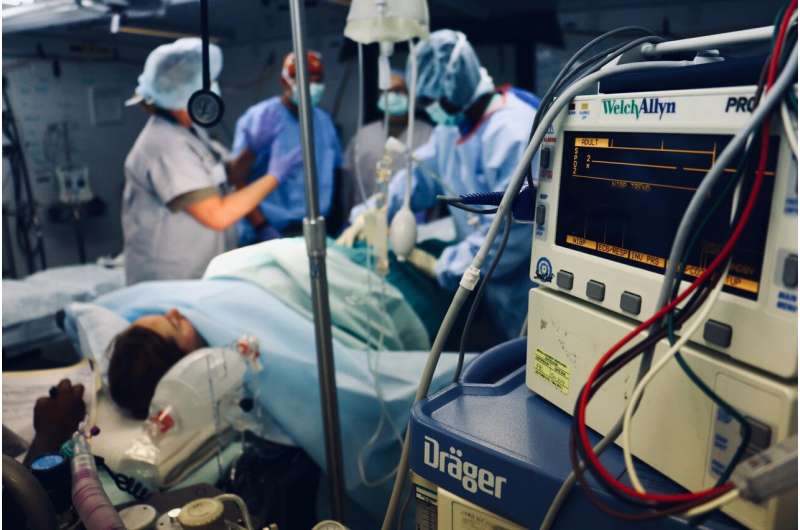

The AustralaSian COVID-19 Trial (ASCOT) has pinpointed the most efficient level of blood thinning treatment needed for patients hospitalized with COVID-19, in a study published in the New England Journal of Medicine Evidence and presented at the American Society for Hematology conference today.
The COVID-19 global pandemic remains a major public health challenge. ASCOT researchers aim to discover which treatments are most effective in patients hospitalized with COVID-19.
Patients in hospital with COVID-19 are at increased risk of blood clots (or thromboses), which in turn may contribute to development of organ failure. Almost all these patients will receive some degree of blood thinning medication.
In an international study, the ASCOT team conducted a randomized clinical trial to test different levels of anticoagulation (or blood thinning) in more than 1,500 patients in Australia, New Zealand, India and Nepal.
They found that an intermediate level of anticoagulation had an 86% probability of being better than low dose anticoagulation. A higher therapeutic dose did not show any benefit.
ASCOT Principal Investigator Professor Steven Tong, an infectious diseases clinician at the Royal Melbourne Hospital and co-lead of clinical research at the Doherty Institute, said that the findings will inform WHO sponsored guidelines.
“Current practice in Australia is for low dose of anticoagulation, while international guidelines recommend the high therapeutic dose of anticoagulation. Therefore, our findings provide evidence that a middle ground may be most beneficial,” Professor Tong said.
Associate Professor Zoe McQuilten, Monash University Transfusion Research Unit Deputy Director and consultant hematologist with Monash University and Monash Health said, “We are pleased to have our study selected for presentation at the American Society of Hematology Annual Meeting & Exposition, which is the premier hematology conference internationally.”
“Importantly, we didn’t find any evidence that the intermediate dose of anticoagulation resulted in increased risk of bleeding. While we didn’t find evidence of benefit from the high therapeutic dose of anticoagulation, we enrolled fewer patients into that arm of the trial.”
Source: Read Full Article